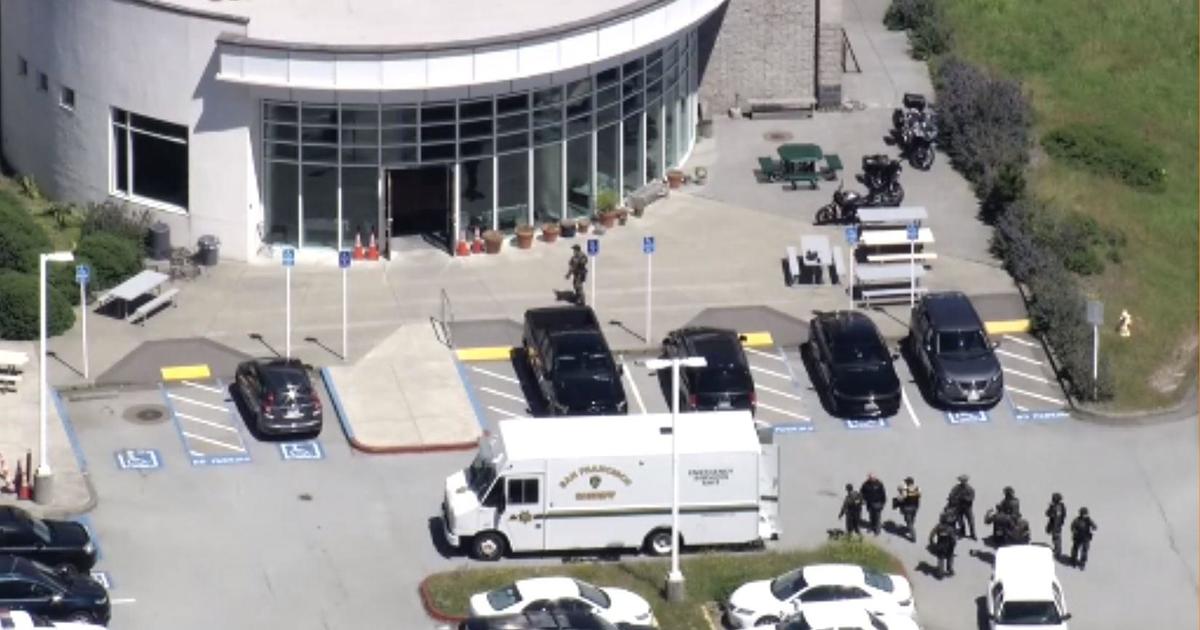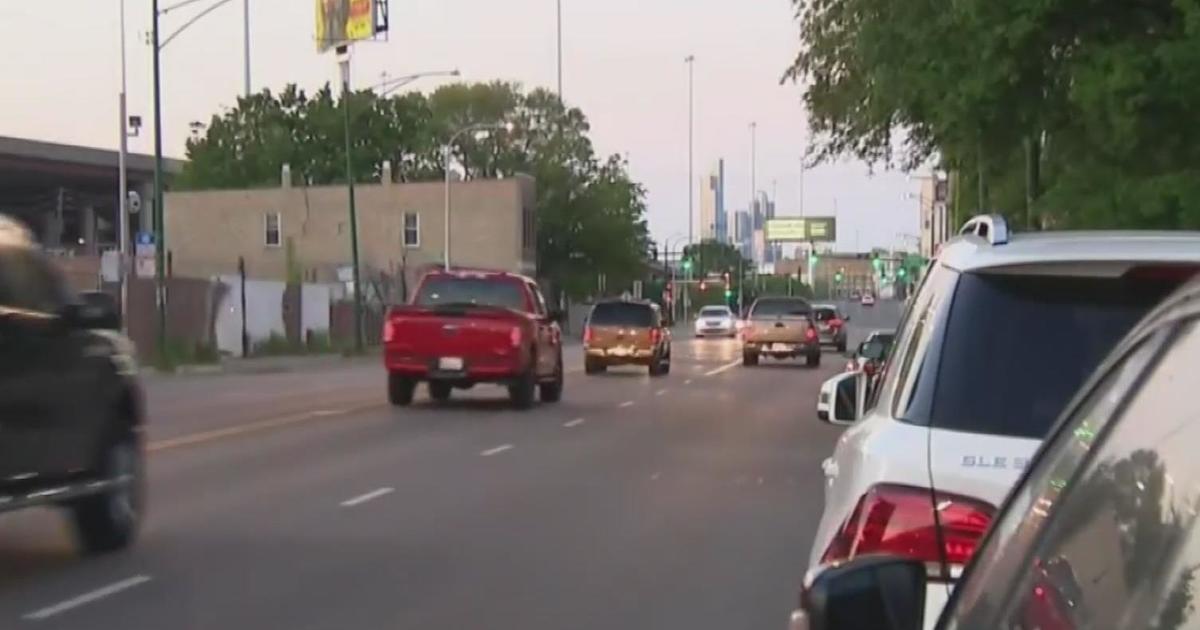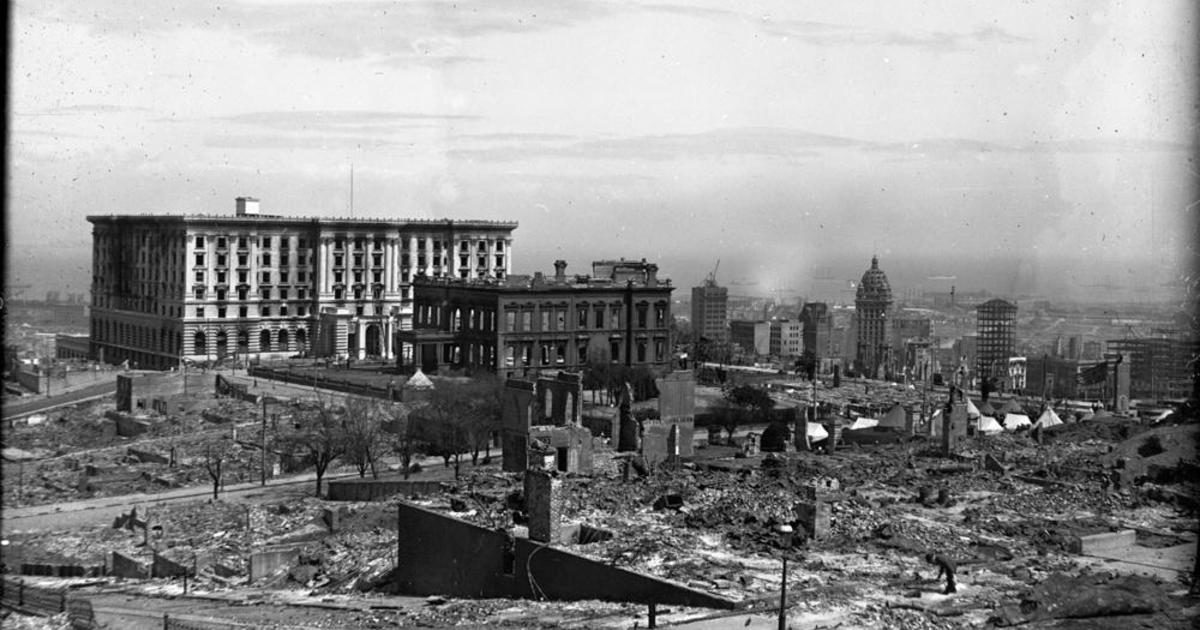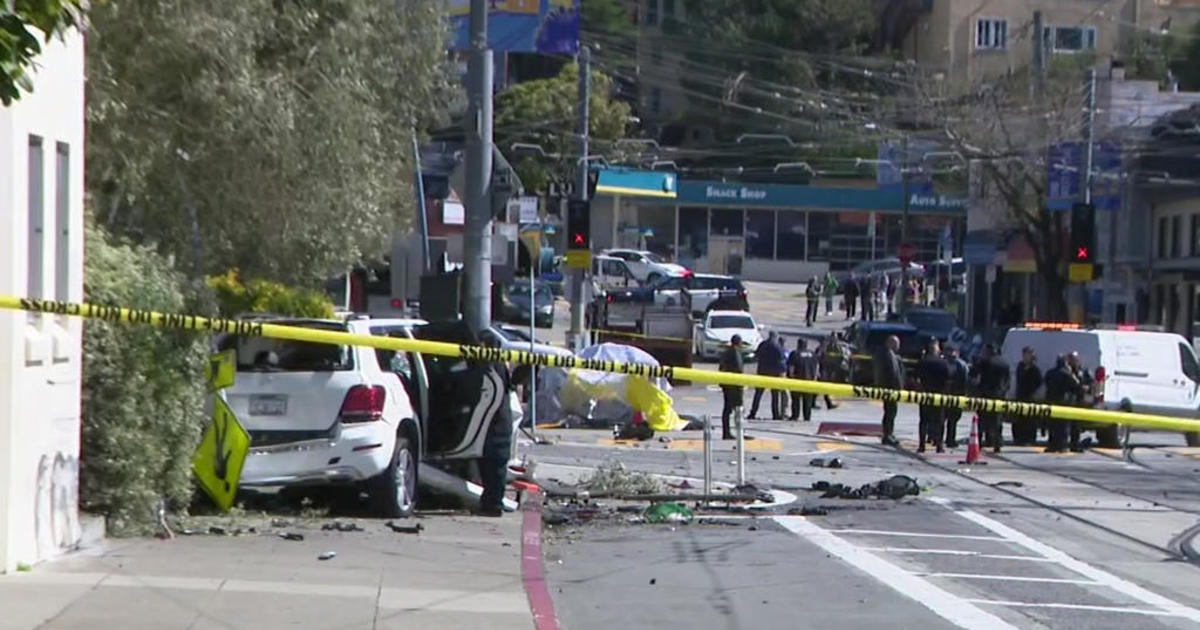Rideshare Drivers Shut Down San Francisco's Market St. To Protest Working Conditions
SAN FRANCISCO (KPIX 5) -- Two days before Uber's initial public offering, more than a hundred drivers and labor activists gathered at the company headquarters in San Francisco on Wednesday to demand higher wages, more benefits and more transparency when it comes to decisions that affect drivers.
At approximately 12:45 p.m., the demonstration moved into Market Street in front of the building, shutting down traffic (save buses) between Polk Street and Van Ness until about 1:45 p.m.. Then they marched around the block, mostly on the sidewalk, before ending the event where it started in front of Uber's offices.
Uber's IPO is projected to raise a historic $91 billion dollars, making the recent decrease in driver pay all the more galling.
In an April 26, 2019 filing with the Securities and Exchange Commission, the company warned, "While we aim to provide an earnings opportunity comparable to that available in retail, wholesale, or restaurant services or other similar work, we continue to experience dissatisfaction with our platform from a significant number of Drivers. In particular, as we aim to reduce driver incentives to improve our financial performance, we expect driver dissatisfaction will generally increase."
RELATED:
- Uber, Lyft Strike Could Mean Higher Prices, Longer Wait Times For Riders
- Uber Files To Go Public In Highly-Anticipated IPO
"As a driver that's been on the platform for over three years, I've seen this constant erosion into the viability of this platform and what started as out to be a good, decent, lower to middle class job has now become poverty," said Jeffrey Perry. He lives in Sacramento and drives for Uber (and sometimes Lyft) in San Francisco.
"Workers are asking for just more reasonable situation," Jeffrey said. Specifically, they're looking for higher wages, better benefits like worker's compensation and paid time off, more transparency around issues like "deplatforming" (when a driver is locked out of the app) and the ability to form an independent worker's organization.
Perry acknowledges that drivers are technically "independent contractors," but he says that's a misnomer.
"There's nothing independent about it other than the fact that I decide when I log on and log off, but it doesn't have the same freedom that they advertise because you still have economic necessity... if you can't make any money, or enough to make it worth it, unless you're on the app for 12 plus hours, how free are you?"
He says the purpose of today's event is, in part, to raise awareness among riders.
"Passengers maybe that think when they pay a $30 fare that the driver is getting, you know, $25 dollars when really we're getting $14, maybe $15 out of that." Uber driver Annette Rivero of San Jose agrees. She told KPIX that when a rider pays $20, the driver keeps $9.
She hopes investors are watching too. "There's a lot of people whose eyes are on Uber and how their business is functioning right now and I think it's important for a lot of people to know that it's not functioning well," Rivero said.
Lawmakers are also part of the intended audience. Uber is global, but California State and Bay Area politicians can have a big impact; political decisions here can seriously impact the company.
"In 2018, we derived 24% of our Ridesharing Gross Bookings [total rideshare dollars] from five metropolitan areas – Los Angeles, New York City, and the San Francisco Bay Area in the United States; London in the United Kingdom; and São Paulo in Brazil," read a section of Uber's recent SEC filing. The filing also notes other local issues:
1. "[M]embers of the Board of Supervisors of San Francisco recently proposed imposing a surcharge on ridesharing trips in San Francisco, and a ballot measure to enact this surcharge may be introduced in 2019."
2. When it comes to non-ridesharing initiatives, "We face a combination of...limitations in certain cities, including San Francisco, where the number of dockless e-bikes we can offer is subject to a cap, where we failed to obtain one of two permits for a limited scooter pilot program, and where our exclusive license to operate dockless e-bikes will expire at the end of 2019."
These are decision points that local elected officials could try to use to force Uber to make certain concessions to workers.
There is also state legislation pending (AB 5) that would classify gig workers as employees.
Still, not all drivers are unhappy with the current situation. One Uber driver, who had not heard about the strike and was working today, told KPIX, "I'm very thankful. Thank God to Uber. I'm a very successful self-employed individual." Then his Uber app lit up with a request for a ride and he drove away.



